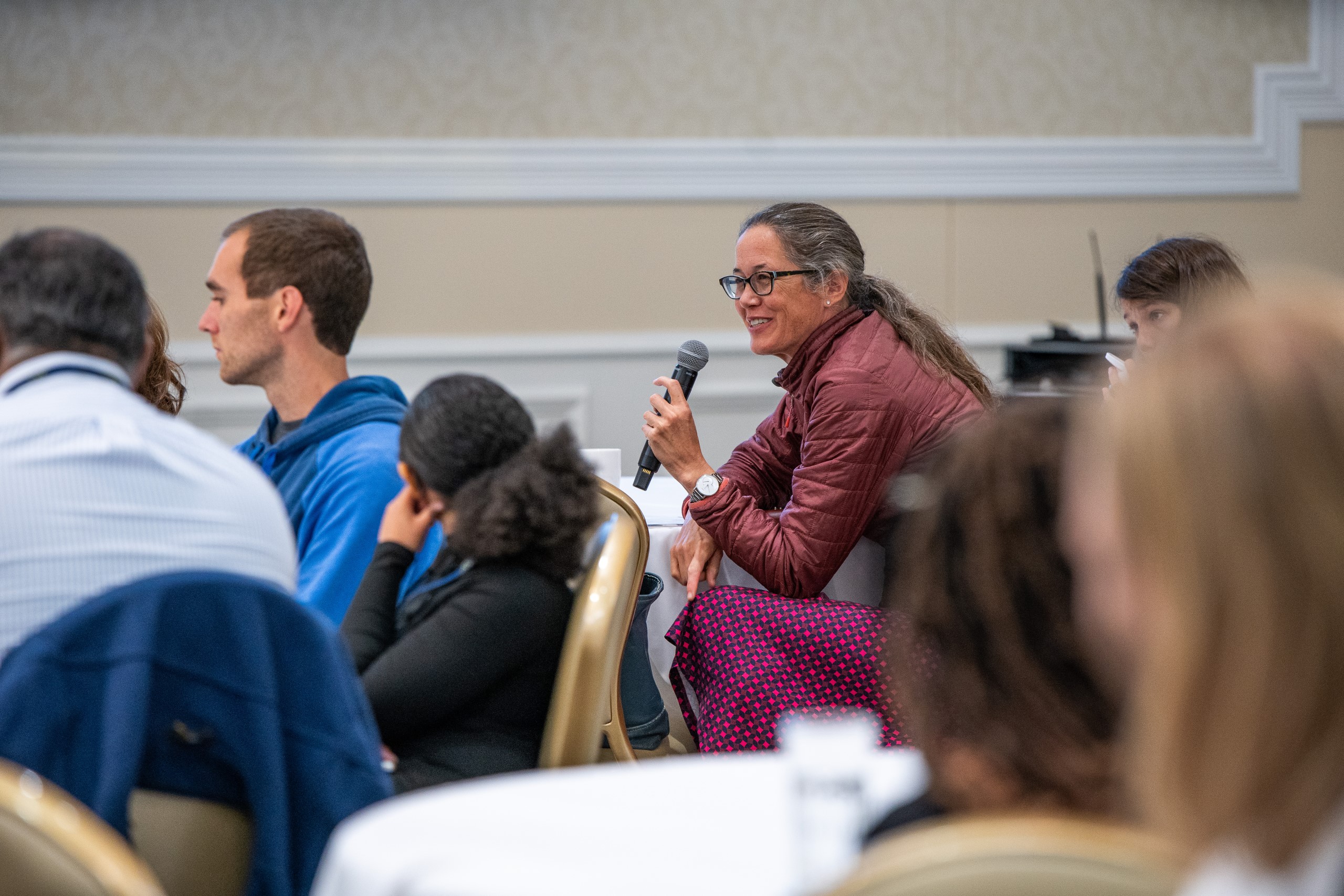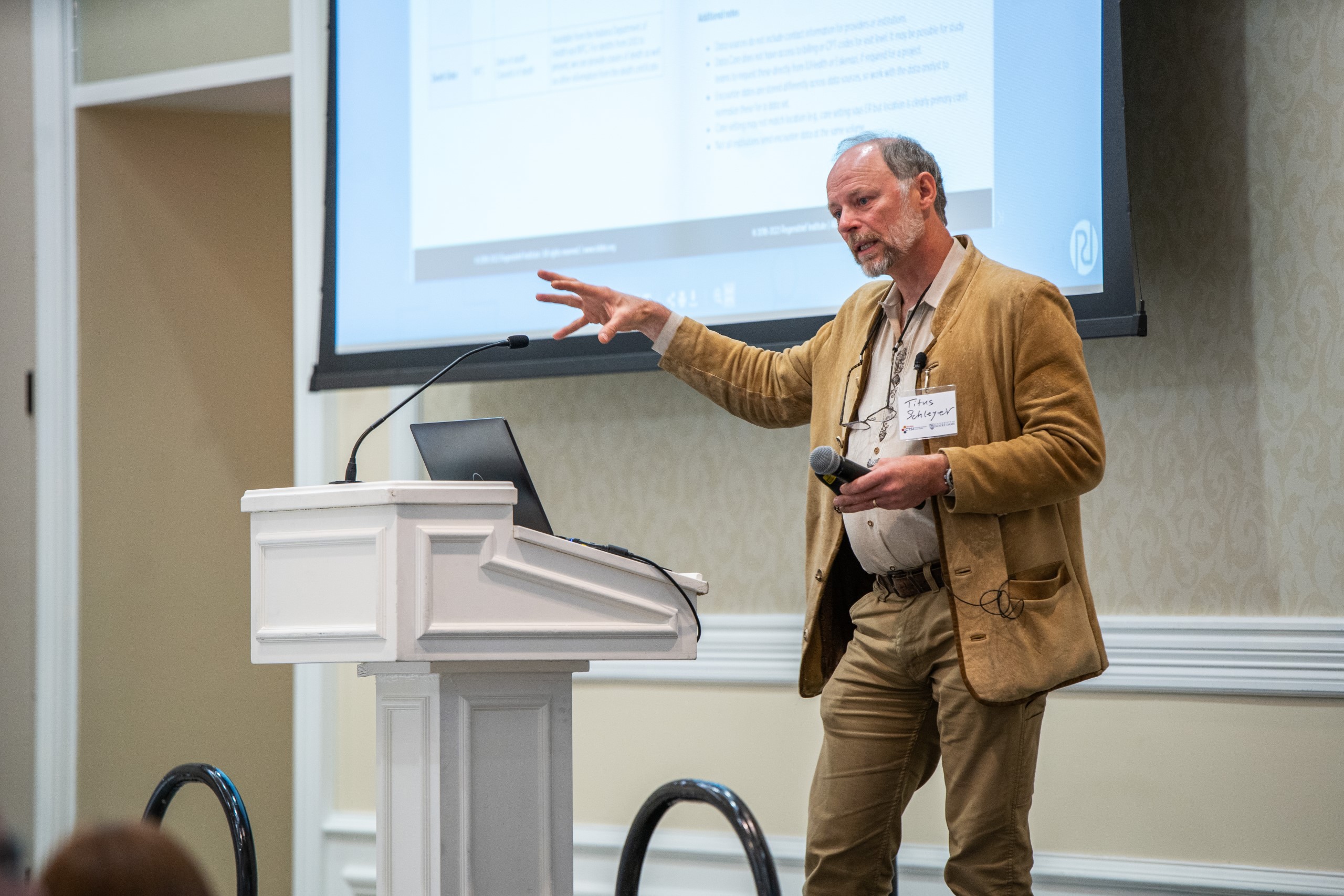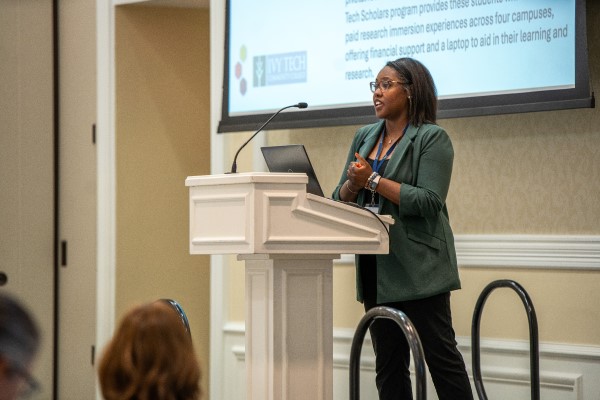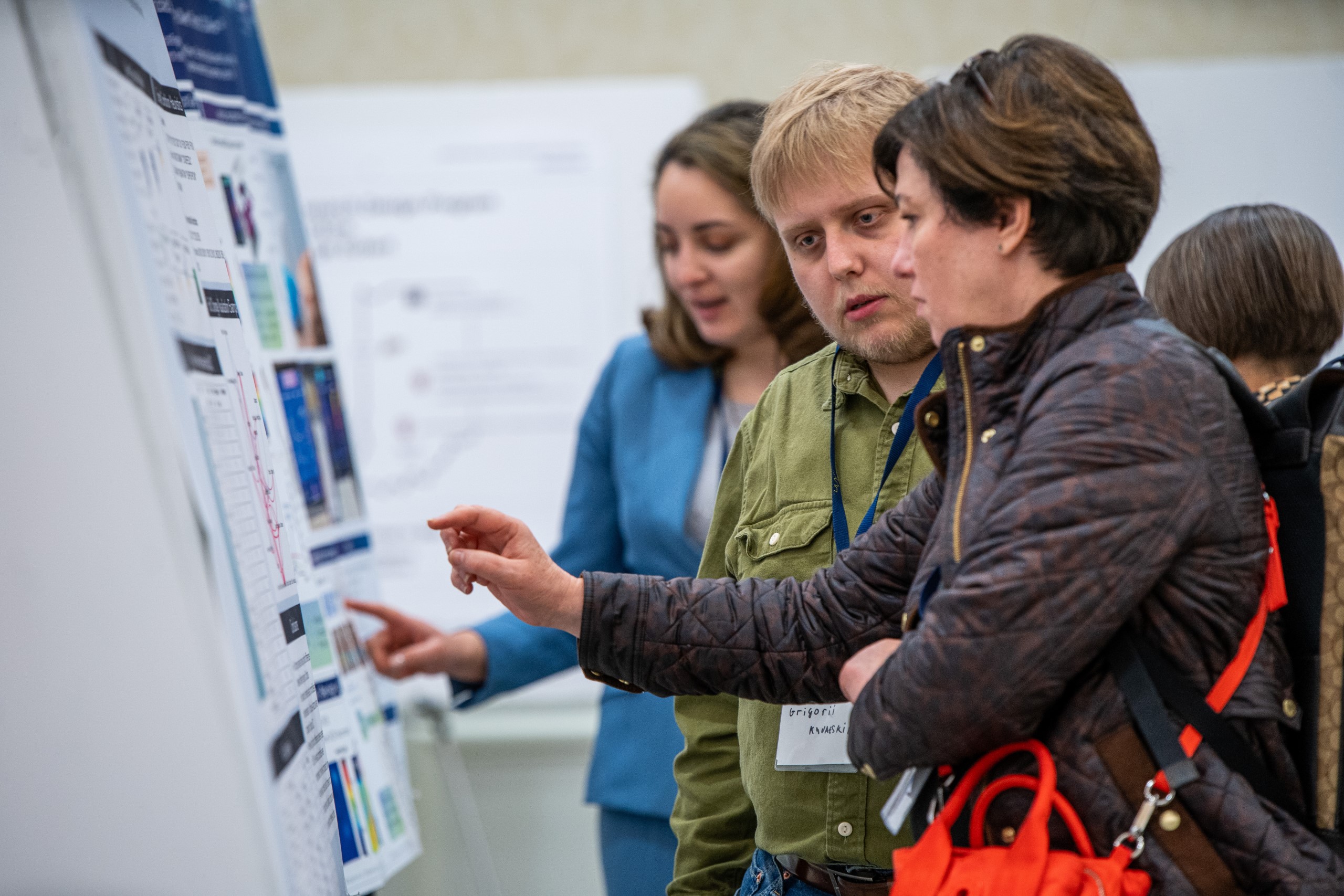On Monday, October 14, the University of Notre Dame hosted its annual Indiana CTSI retreat. About sixty in-person and more than 30 virtual attendees convened on the Notre Dame campus to learn about the Indiana CTSI, its services, and its ongoing initiatives to advance health in Indiana during the “4.0” period, which refers to its fourth consecutive renewal of its grant from the National Institutes of Health (NIH).

Dr. Sarah Wiehe asks a question.
Sharon Moe, MD, who is co-director of the Indiana CTSI, shared that between now and 2030, the institute will turn a strategic focus on public health regions 1 and 7, while continuing to strengthen its capacity to catalyze translational research across the state.
“Think of the Indiana CTSI as your battery powered by people, tools, and funding,” she said.
Throughout the day, the speakers called on Notre Dame researchers to share their ideas and contribute their unique strengths to the Indiana CTSI’s efforts.

Dr. Titus Schleyer discusses data and informatics at the Indiana CTSI.
Melanie DeFord, who is assistant vice president for research at Notre Dame and the Indiana CTSI’s deputy director for that institution, said she was encouraged and exhilarated by the attendees’ strong engagement. She hopes that will translate to continued engagement with the Indiana CTSI after the retreat.
This was supported by Jeff Rhoads, PhD, vice president for research, who shared that Notre Dame is making strategic investments in key areas, such as data science, health, and sustainability. This bold vision can only be realized in partnership, he said, and the Indiana CTSI and its partner institutions are a cornerstone of that effort.

Jalysa King presents about the Indiana CTSI’s Ivy Tech Research Scholars Program.
In the morning, attendees listened to presentations on the Indiana CTSI’s key initiatives and services during the 4.0 period:
- The Monon Collaborative and Expansion: Previously focused in Central Indiana, this health equity initiative is being expanded to regions 1 and 7 and will establish, develop and sustain partnerships between community partners and translational researchers. The location of these regions should spur collaboration between institutions, shared Sarah Wiehe, MD, MPH, who serves as co-director of the Indiana CTSI with Moe.
- Workforce Development: The Indiana CTSI offers immersive research experience opportunities for people at all levels of training—from high school students to early career faculty. The newest is the Ivy Tech Research Scholars Program, which pairs Ivy Tech students with research mentors with hope to launch careers in research.
- Public Deliberation, Bioethics, and Subject Advocacy: Recently, the Indiana CTSI’s Bioethics and Subject Advocacy Program (BSAP) led a public deliberation initiative about biobanks known as “Element E.” Participants were educated on biobanking, discussed ethical questions related to biobanking, and then made recommendations. This effort demonstrates the institute’s commitment to trustworthiness and increasing trust in science and research.
- Informatics and CTSI Researchers: The Indiana CTSI Informatics team and the Regenstrief Data Core help researchers acquire, understand, and analyze data from electronic health records, registries and other sources. A useful new resource is the Research Data Commons, which supports production, sharing, and collaboration around research data infrastructure across Indiana University.
- Community Health Partnerships: In addition to leading the Monon Collaborative and Expansion, the Indiana CTSI’s community engagement initiative continues to improve the health of Indiana residents through community-university partnerships. It does this through its coalitions (Connections IN Health), its partnership with Indiana Family and Social Services Administration (WISE Indiana), its Trailblazer Awards, and its patient engagement core (Research Jam).

Grigorii Khvatskii answers questions from a poster attendee about his research.
In the afternoon, attendees networked at lunch, engaged with researchers during the poster session, and participated in structured breakout sessions that focused on the presentation areas.
“Here at Notre Dame, our mission and the Indiana CTSI’s mission are completely aligned,” DeFord said. “I’m hopeful that as people on this campus hear more about how we do research (in collaboration and with an eye toward serving the underserved), and why we do it (to be a force for good), they will see the connection with the Indiana CTSI, and engagements will blossom from there.”
